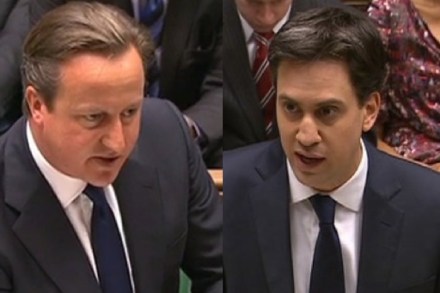PMQs sketch: EU referendum, the Greens and A&E
Would he say no to saying no? The first question at PMQs, from Gregg McClymont, was about Cameron’s vote in the EU referendum, (if it ever happens). McClymont wants the PM to rule out ruling out Britain’s participation in the economic suicide pact based in Brussels. Nope, said Cameron. He went on to boast that ever since he floated his referendum theory, foreign firms have been swarming to our shores and setting up shop in Britain. We might export this solution to the Eurozone. Make the referendum EU-wide and the investment gods will squirt prosperity into every crack and cranny of this seized-up continent. In/out dominated Miliband’s questions too, as




















